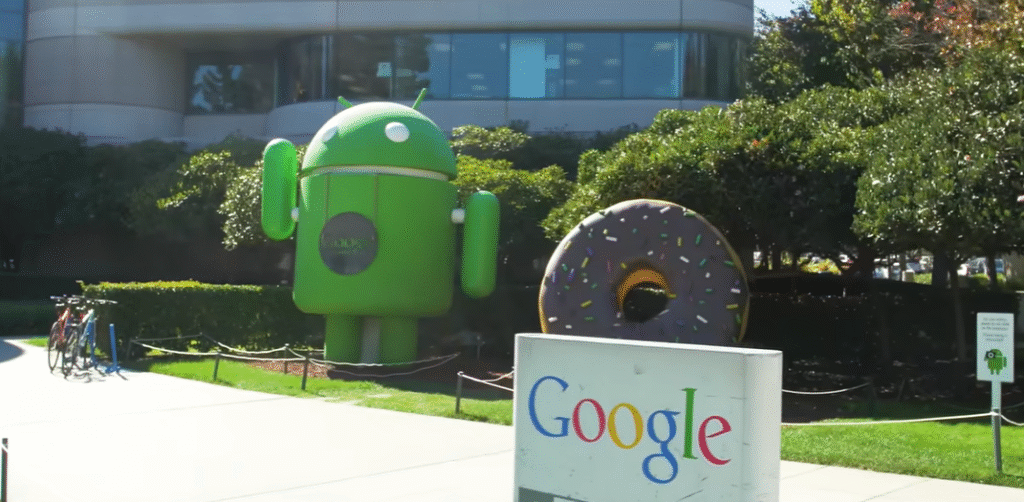Google was ordered to pay $425 million in compensation by a federal jury in California for allegedly collecting data from millions of users who had disabled their “Web & App Activity” settings. Nearly 98 million people are impacted by this decision, which calls into question issues of consent, transparency, and the distribution of power between users and tech companies.
In Rodriguez v. Google LLC, the plaintiffs made a strong argument that demonstrated how Google’s tracking went beyond its own apps. Data continued to move through third-party apps that were integrated with Google’s software, even when users turned off specific privacy settings. The disclosure effectively illustrated the complexity of contemporary surveillance networks. It also demonstrated how common users’ digital behaviors, which are frequently taken for granted, can serve as the basis for multibillion-dollar legal disputes.
Naturally, Google denied any wrongdoing. Its defense was very clear: the privacy setting in question did not promise a total stop to analytics data collection; it merely paused personalized advertising. The company’s attorneys contended that users should have been aware of the distinction and that the policy had been misunderstood. Despite being strategically sound from a legal standpoint, that argument felt disconnected from the actual experiences of regular users who took “off” to mean “off.”
Gmail Lawsuit Claim — Key Details
| Category | Details |
|---|---|
| Defendant | Google LLC |
| Case | Rodriguez v. Google LLC |
| Settlement Amount | $425 million (ordered by California federal jury) |
| Date of Ruling | November 2025 |
| Affected Users | Approximately 98 million Gmail and Google account holders |
| Eligibility Period | July 1, 2016 – September 23, 2024 |
| Core Issue | Unauthorized data collection despite “Web & App Activity” being turned off |
| Distribution Method | Pro rata (equal share among eligible users) |
| Appeal Status | Google plans to appeal the verdict |
| Reference | Kiplinger – Google $425M Class Action Lawsuit |

Because it reflects a broader feeling of digital fatigue—that online privacy is a privilege rather than a right—the lawsuit is especially noteworthy. Other significant tech scandals, such as data leaks from Meta, Amazon, and even government organizations, occurred at the same time as the case. Users were assured that their data was secure in each case, but they later found hidden vulnerabilities. In addition to challenging a single feature, the Gmail lawsuit brought attention to the growing mistrust of how businesses handle personal data.
Given Google’s trillion-dollar valuation, many people might view the $425 million fine as symbolic. However, its effects are more profound. It means that even the biggest names in the industry will have to answer for their deceptive tactics. The payout itself may only be a few dollars per user, split equally among those impacted. However, its underlying premise—that consent cannot be coerced—is especially novel in influencing upcoming legal frameworks for digital accountability.
The ruling might serve as a pillar for international privacy reform if it is upheld. The arguments presented in the case are already prompting regulators in Europe and Asia to review their policies. Legal experts refer to it as a “domino moment,” one that has the potential to set off a chain reaction of comparable lawsuits against businesses that employ ambiguous data terms. In academic circles, the case has already spurred conversations about ethical design, where honesty and simplicity are valued more highly than profit-driven opacity.
The problem goes beyond the law. It is deeply human, cultural, and behavioral. Users expect peace of mind when they turn off data collection. Rather, they are constantly being watched by systems that are meant to learn, adjust, and predict. It’s a minor but enduring betrayal of trust, akin to leaving a room and discovering the lights were never turned off. That unease is brought into sharp relief by the Gmail lawsuit.
For digital citizens, this case is a strikingly powerful warning, according to privacy experts. It highlights that although helpful, privacy controls are rarely absolute. Businesses frequently employ ambiguous language to provide them with legal justification to carry on data mining in the background. For users who lack the technical literacy to understand such subtleties, this reality is particularly frustrating. The fact that Google insists that users “should have known” only serves to highlight how unbalanced the relationship has become between businesses and customers.
Nonetheless, the lawsuit has given privacy advocates hope. It reaffirms that individuals have power in collective resistance by demonstrating that class actions can be used to enforce corporate accountability. The Gmail decision has already been cited by attorneys in related cases against Facebook and YouTube as a precedent for claims of transparency. In that regard, the decision might turn out to be incredibly resilient, influencing discussions about technology and ethics for years to come.
There has never been a more obvious link between privacy and profit. Businesses gather user data for more than just advertising; they also use it to improve algorithms, forecast user behavior, and even affect purchasing patterns. Their unspoken advantage stems from this knowledge, which powers every digital transaction like an unseen currency. Thus, the Gmail case represents a philosophical and legal challenge to the commercialization of human behavior.
The story has struck a chord with regular users outside of the courtroom. Many people talk about being “digitally fatigued,” worn out by phrases and circumstances that never seem to shield them. Interest in data protection tools like VPNs and encrypted browsers has increased as a result of the lawsuit. Although these tools are very effective at reducing exposure, no solution is completely infallible, according to security experts. The who, when, and where of online activity are known as metadata, and they are frequently still accessible even when encrypted.

